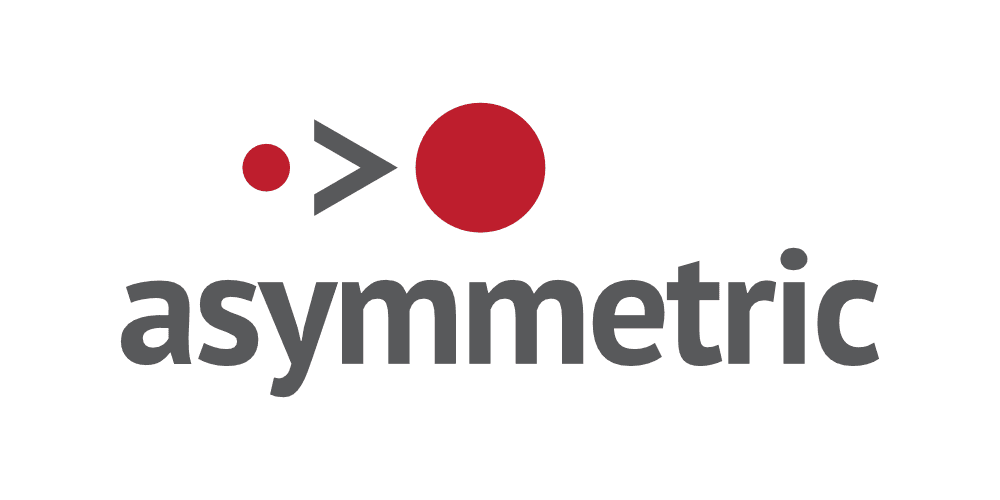Search engine marketing (SEM) tools are indispensable for boosting your online visibility and driving targeted traffic. This article explores the top SEM tools, explaining their features and how they can enhance your campaigns.
Key Takeaways
- Search Engine Marketing (SEM) tools are essential for optimizing strategies, improving visibility, and driving targeted traffic, but they require careful consideration regarding costs and learning curves.
- Key tools like Google Ads, Semrush, and SpyFu provide functionalities for ad management, competitor analysis, and keyword research, which are crucial for effective SEM strategies.
- Automation, analytics, and budget management tools enhance campaign performance and efficiency, allowing marketers to focus on strategic decision-making and creative execution.
Essential Search Engine Marketing Tools

Search Engine Marketing (SEM) plays a crucial role in digital marketing by boosting reach and visibility. A search engine marketing tool optimizes strategies, increases visibility, and drives targeted traffic through features such as keyword analysis, ad campaign management, and robust analytics. These tools streamline processes and deliver actionable insights, making them indispensable for enhancing efficiency and performance. Despite their benefits, SEM tools may present challenges like steep learning curves and costs, necessitating careful consideration and a balance with human expertise in search engine optimization and marketing campaigns.
Successful SEM strategies depend on understanding keywords, budgets, and compelling ad copy. Identifying relevant keywords is crucial for maximizing ROI and achieving desired results. Tools ranging from Google Ads to specialized options like SpyFu each provide unique benefits that can greatly enhance marketing efforts.
Google Ads
Google Ads is essential for creating targeted ad campaigns across Google’s vast network. Effective account structuring improves management, enables targeted ads and landing pages, enhances Quality Score, and lowers cost-per-click. This organization offers valuable performance insights, guiding budget allocation. Quality Score significantly impacts ad placement and cost-per-click, influenced by ad relevance, click-through likelihood, and landing page experience.
Ad placement in Google Ads depends on the maximum bid amount and Quality Score. Advertisers must identify keywords and set a maximum bid per click to enter an ad auction. This process ensures ads reach the right audience, optimizing ad spend and enhancing campaign performance.
Semrush
Semrush is a versatile tool for competitive intelligence, SEO, PPC, SMM, and content analysis. It offers three pricing plans to cater to user needs and provides essential functionalities like keyword research, rank tracking, site audits, and traffic analysis.
Semrush provides analytics for display advertising, organic and paid search, and link building, helping to understand competitors’ strategies. Integration with data sources like Google Analytics and Google Search Console offers real-time insights, enhancing SEM campaigns.
Microsoft Advertising
Microsoft Advertising targets audiences on Bing, Yahoo!, and AOL, offering targeted ad placements at a lower cost than Google Ads. This makes it an attractive option for budget-conscious advertisers. Utilizing Microsoft Advertising enables marketers to reach a preferred audience on Bing, diversify their SEM strategies, and tap into a less competitive market.
SpyFu
SpyFu is a powerful SEO and PPC tool offering deep insights into competitors’ Google Ads strategies. It reveals purchased keywords, organic rankings, and various ad variations, providing a comprehensive view of competitor activities.
SpyFu’s affordable pricing makes it a cost-effective solution for businesses seeking to enhance competitive analysis without high costs.
WordStream
WordStream optimizes Google Ads campaigns with functionalities like performance tracking, analyzing negative keywords, and assessing landing page and ad text quality. These features facilitate data-driven decisions, enhancing ad effectiveness and overall campaign success by targeting the right keywords and improving ad performance.
Optmyzr
Optmyzr specializes in advanced automation for Google Ads, enabling users to create and edit campaigns across multiple platforms. Its Enhanced Scripts automate complex workflows without programming expertise. Integration with Google platforms like Gmail, Docs, Google Apps, Calendar, and Spreadsheets ensures seamless data management and reporting.
Optmyzr’s price model, based on monthly ad spend, offers scalable solutions for businesses of different sizes.
Advanced Keyword Research Tools

Advanced keyword research tools are vital for identifying valuable keywords, optimizing targeting, and improving ad performance. Tools like Google Trends help marketers stay ahead by identifying trending search terms and avoiding declining keywords. Traditional keyword research tools simplify finding relevant keywords, which is crucial for a successful PPC strategy. Understanding the relationship between keyword volume and competition allows marketers to seek high-volume, low-competition keywords for better targeting.
Selecting the right keywords based on user intent and competitor analysis refines strategies. Tools like SEMrush, Ahrefs, and Keywordtool.io offer insights into search trends and competitor activities, boosting the overall effectiveness of SEM campaigns.
Google Ads Keyword Planner
The Google Ads Keyword Planner is essential for researching keywords and tracking search trends. It offers free access to keyword data, including suggested bid estimates, helping advertisers gauge potential costs. Once ideal keywords are identified, users can launch targeted ad campaigns to maximize reach and effectiveness.
Marketers can use the Google Ads Keyword Planner to identify relevant keywords, track search volume, and analyze competition to refine their strategies. This tool is vital for creating data-driven campaigns that capitalize on search trends and user intent.
Keywordtool.io
Keywordtool.io generates up to 750 long-tail keyword variations, enhancing targeting in SEM campaigns. Analyzing Google search trends offers valuable insights for optimizing SEM strategies. This powerful tool helps marketers refine keyword targeting, ensuring campaigns align with current search trends and user behavior.
Ahrefs
Ahrefs offers a comprehensive suite of features, including:
- A keyword explorer, which allows in-depth keyword research, aiding marketers in better targeting their campaigns
- Site audit capabilities that identify technical SEO issues that could impact SEM strategies
- Content idea generation tools to help create engaging content
These features ensure websites are optimized for performance.
Competitor Analysis Tools

Competitor analysis is crucial in SEM, helping businesses understand their competitors’ strategies and improve their efforts. Tools like SpyFu and SEMrush enable tracking competitors’ keyword performance and PPC strategies, providing insights to refine marketing campaigns. Understanding competitors’ advertising trends allows businesses to adjust strategies, stay competitive, and maximize marketing efforts.
Competitor analysis tools help identify market gaps and opportunities. This proactive approach ensures businesses know competitors’ tactics and can leverage this knowledge to enhance their campaigns.
SEMrush
SEMrush offers an integrated platform for in-depth competitor analysis in SEM. Tracking competitors’ keyword performance helps marketers identify effective strategies and refine their own campaigns accordingly.
Analyzing competitors’ advertising trends via SEMrush enables businesses to optimize marketing efforts for better performance.
SpyFu
SpyFu is essential for uncovering competitors’ strategies in SEM. It reveals competitors’ Google Ads keywords and allows users to explore their ad variations.
Utilizing SpyFu, marketers can enhance SEM strategies based on insights gained from competitors’ activities.
SimilarWeb
SimilarWeb analyzes competitors’ traffic sources and audience behavior, offering insights into where competitors’ visitors come from and helping organizations understand their traffic sources.
SimilarWeb reveals audience engagement metrics, enabling companies to evaluate user interactions with competitors’ sites and make informed strategic marketing decisions.
Ad Management and Automation Tools

Ad management and automation tools are vital for effectively managing and optimizing ad campaigns. These tools automate optimizations for ad performance, maximizing returns from advertising efforts. For instance, Marin Software offers advanced bid management features, allowing real-time bid adjustments based on performance. Marketers can use these tools to reduce manual tasks and improve ROI, making ad campaigns more efficient and effective.
Automation in ad management ensures consistent campaign optimization, freeing marketers to focus on strategy and creative elements. Tools like HubSpot Ads, Skai, and AdRoll offer unique capabilities to enhance campaign management.
HubSpot Ads
HubSpot Ads tracks the effectiveness of advertisements throughout the buyer’s journey. Leveraging CRM data facilitates the creation of targeted audiences, improving ad campaign effectiveness. Integration with offline conversion tracking enhances lead quality by focusing bids on high-value prospects, refining strategies, and justifying search engine marketing investments.
Skai (Formerly Kenshoo)
Skai manages, automates, and optimizes SEM campaigns across multiple channels, providing recommendations based on performance data to enhance campaign effectiveness.
Skai displays revenue relative to PPC spending, offering valuable insights for better budget management and optimization.
AdRoll
AdRoll offers essential functionalities for marketers, including retargeting, prospecting, and email marketing. It uses user data for retargeting campaigns to re-engage visitors who previously interacted with a brand. AdRoll’s advanced retargeting strategies enhance audience engagement, ensuring marketers can reconnect with potential customers and drive conversions.
Analytics and Reporting Tools

Performance evaluation tools are crucial for measuring ad campaign effectiveness and making informed decisions. Tools like the Google Ads Performance Grader evaluate campaigns by providing a score based on various performance metrics, offering actionable insights to enhance ad performance. Tracking and analytics help understand performance, identify areas for improvement, and ensure marketing strategies are optimized for success.
This section explores the capabilities of Google Analytics, Google Data Studio, and WordStream Advisor, each offering unique features to help marketers gain detailed insights into their campaigns.
Google Analytics
Google Analytics tracks various metrics, such as traffic sources, user behavior, and conversions. Marketers can make informed decisions to optimize SEM campaigns for better results by analyzing these metrics. This tool offers a comprehensive view of user interactions, helping to refine strategies and enhance overall campaign performance.
Google Data Studio
Google Data Studio allows users to create customizable reports that pull real-time data from multiple sources. This enables marketers to create dynamic visual reports integrating data from various marketing platforms, enhancing clarity and decision-making.
These reports offer actionable insights, helping marketers understand and optimize their ad campaigns more effectively.
WordStream Advisor
WordStream Advisor features advanced reporting functionalities that help marketers make data-driven decisions for their SEM strategies. It offers automated insights and alerts, empowering marketers to monitor campaign performance and identify trends through detailed analytics and recommendations. These features ensure that SEM efforts are continuously optimized for maximum effectiveness.
Budget Management Tools
Effective budget management is crucial in SEM as it helps maximize ROI by controlling costs and optimizing spending. Tools like Google Ads offer budget management features that allow advertisers to control costs based on bidding strategies and quality metrics. Budget estimation tools enable marketers to manage their budgets and project costs, allocate resources, and increase ROI.
This section will explore tools such as the Google Ads Performance Grader, AdEspresso, and Marin Software, each providing unique capabilities to help marketers manage and optimize their SEM budgets efficiently.
Google Ads Performance Grader
The Google Ads Performance Grader evaluates accounts against ten essential benchmarks to identify areas for improvement. By assessing campaign metrics, this tool offers actionable insights that help users optimize their Google Ads campaigns for better performance and ROI.
This comprehensive evaluation ensures that ad spending is effectively managed and campaigns are continuously refined.
AdEspresso
AdEspresso supports ad management across Google, Facebook, and Instagram, allowing users to streamline their advertising efforts. It helps manage and optimize ad budgets seamlessly while running campaigns simultaneously across various social media platforms. Access to ad campaign experts provides reviews and suggestions, enhancing user experience and campaign efficiency.
Marin Software
Marin Software offers advanced capabilities for tracking budgets, managing bids, and analyzing performance across various marketing channels. Integrating data from multiple channels facilitates comprehensive performance analysis for budget tracking, enabling marketers to make informed decisions and enhance their SEM strategies.
Summary
In search engine marketing, the right tools can make all the difference. From essential tools like Google Ads and Semrush to advanced keyword research and competitor analysis tools, each plays a crucial role in enhancing your marketing efforts. Ad management and automation tools streamline processes and improve ROI, while analytics and reporting tools provide the insights needed to refine strategies. Effective budget management ensures that your resources are allocated efficiently, maximizing returns. By leveraging these tools, you can stay ahead of the competition and achieve your marketing goals precisely and efficiently.

Frequently Asked Questions
What is search engine optimization in marketing?
Search engine optimization (SEO) in marketing refers to the process of optimizing a website or online content to improve its visibility in organic (non-paid) search engine results. SEO focuses on increasing the quantity and quality of traffic to a website by using strategies such as keyword research, content optimization, link building, and technical enhancements. The goal is to rank higher on search engines like Google for relevant search terms, making it easier for potential customers to find your website. SEO is a long-term strategy that helps drive organic traffic and increase brand awareness without the need for paid advertising.
What is search engine marketing?
Search engine marketing (SEM) is a digital marketing strategy that promotes websites by increasing their visibility in search engine results through paid advertising. Unlike SEO, which focuses on organic traffic, SEM uses paid search ads (like Google Ads) to appear at the top of search engine results pages (SERPs). SEM is a fast way to reach your target audience, as businesses can bid on specific keywords related to their products or services, ensuring their ads appear when users search for those terms. SEM combines paid search tactics with other forms of online advertising to boost website traffic and conversions.
What are the essential tools for search engine marketing?
Essential search engine marketing tools include Google Ads, Semrush, Microsoft Advertising, SpyFu, WordStream, and Optmyzr. Utilizing these tools can significantly enhance your marketing strategy and drive better results.
How does Google Ads improve SEM campaigns?
Google Ads significantly enhances SEM campaigns through targeted ad placements, improved Quality Scores, and access to detailed performance insights, ultimately resulting in more effective advertising strategies.
What is the role of keyword research tools in SEM?
Keyword research tools are essential for identifying valuable keywords and analyzing search trends. They enable you to optimize ad targeting and improve campaign performance effectively.
Why is competitor analysis important in SEM?
Competitor analysis is crucial in SEM as it allows you to understand competitors' strategies, identify market gaps, and enhance your marketing tactics for improved outcomes. This insight leads to more effective campaigns and a stronger market position.
What are the benefits of using budget management tools in SEM?
Using budget management tools in SEM effectively controls costs, optimizes spending, and maximizes ROI by offering valuable insights into ad performance and budget allocation. This strategic approach ensures that your advertising investments yield the best possible results.
What are the key features to look for in a search engine marketing (SEM) tool?
When selecting a search engine marketing tool, consider keyword research capabilities, campaign management functionality, performance tracking, and integration with other marketing tools. Ensure the tool provides real-time data, advanced analytics, and ease of use to maximize your SEM efforts.
How can SEM tools help improve ROI in digital marketing?
SEM tools allow marketers to optimize their ad spend by identifying the most effective keywords, analyzing competitor strategies, and tracking campaign performance in real-time. With data-driven insights, businesses can make informed decisions, reduce wasted spending, and improve their overall return on investment (ROI).
Are there SEM tools that cater specifically to small businesses?
Yes, many SEM tools are designed with small businesses in mind, offering budget-friendly options and simplified features that cater to smaller-scale campaigns. Tools like Google Ads, Moz, and Ubersuggest provide robust functionality without a large budget, making it easier for small businesses to compete in digital advertising.

Ready to Supercharge Your Search Engine Marketing Strategy?
If you're looking to elevate your search engine marketing efforts, choosing the right tools is the first step. Whether you're a small business just starting or an established enterprise aiming to refine your strategy, we’re here to help you navigate the complex world of SEM and achieve your marketing goals.
- Explore Our SEM Services: Visit our Growth Marketing Page
- Contact Us for a Consultation: Schedule a Call
- Learn More: Read Related Articles
Let us help you select the right tools and build a winning strategy that drives results!
About the author
Mark A. Hope is the co-founder and Partner at Asymmetric Marketing, an innovative agency dedicated to creating high-performance sales and marketing systems, campaigns, processes, and strategies tailored for small businesses. With extensive experience spanning various industries, Asymmetric Marketing excels in delivering customized solutions that drive growth and success. If you’re looking to implement the strategies discussed in this article or need expert guidance on enhancing your marketing efforts, Mark is here to help. Contact him at 608-410-4450 or via email at mark.hope@asymmetric.pro.

